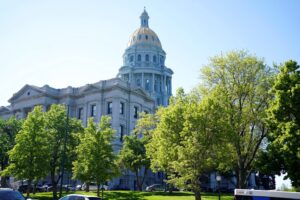Water district subject to TABOR vote requirement
- By CHARLES ASHBY Charles.Ashby@gjsentinel.com
- Mar 22, 2024
Water districts are like all other government entities that are subject to the Taxpayer’s Bill of Rights when it comes to voters approving tax increases, the Colorado Appeals Court ruled Thursday.
In a precedent-setting case out of Logan County in the northeast corner of the state, a three-judge panel overturned a lower court’s decision that the Lower South Platte Water Conservancy District that serves four Eastern Plains counties violated TABOR by doubling its mill levy starting in 2019 because it did so without voter approval.
The lower court had ruled in favor of the district, saying its raising of the levy from 0.5 mills to 1 mill did not violate that 1992 constitutional amendment because the water district was formed before TABOR was approved, and is required under the state’s Water Conservancy Act to set a mill levy based on a mandatory and non-discretionary formula.
The water district tried to argue that the Colorado Supreme Court, in Huber v. Colorado Mining Association, allows such mill levy increases because of that formula.
But a three-judge panel said that high court ruling applies to entities that aren’t making a legislative or governmental act for a tax-rate increase, but a non-discretionary duty under pre-TABOR taxing statutes, such as the Colorado Department of Revenue making legally required adjustments to severance taxes. Continue reading
 AP Photo/David Zalubowski
AP Photo/David Zalubowski